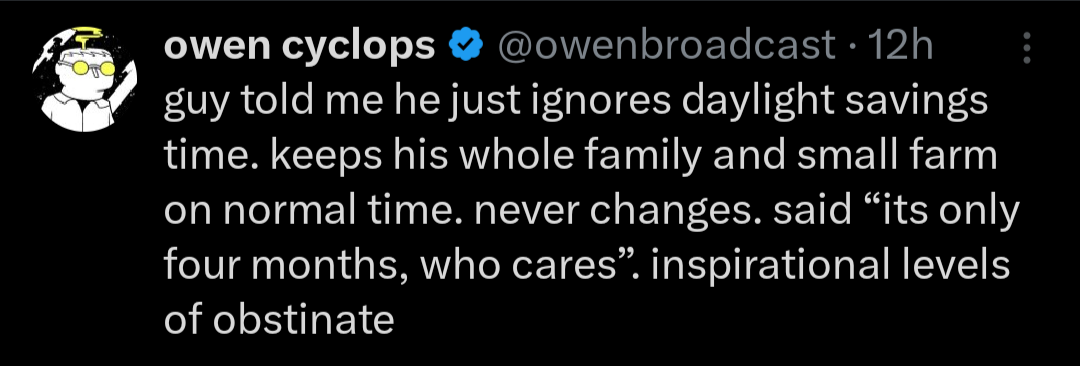this post was submitted on 07 Oct 2024
1132 points (99.4% liked)
People Twitter
5274 readers
869 users here now
People tweeting stuff. We allow tweets from anyone.
RULES:
- Mark NSFW content.
- No doxxing people.
- Must be a tweet or similar
- No bullying or international politcs
- Be excellent to each other.
founded 1 year ago
MODERATORS
you are viewing a single comment's thread
view the rest of the comments
view the rest of the comments

The complexity with scheduling will still exist - it's only shifting where the complexity lies. Scheduling a meeting at 1PM Sol time is no guarantee that either person would be awake at that time, depending where they are on Earth or Mars.
But we're past the point where humans need to do the math. There's global calendars that will do the translating for us rather than asking the vast majority of humans to change.
Not my experience at all, especially not while DST exists in at least one place around the world.
I still have a lot of situations where we discuss things on a video call or something and someone needs to figure out the math. If I instead say, "1300 hours UTC," and everyone is using UTC, it's easy for someone to say, "no, that time doesn't work, how about 1800?" or whatever. If you're dealing w/ multiple time zones (e.g. at work I deal with three, each at least 5 hours apart from each other), having one standard time is a lot simpler (we use our local time, because we're the parent org).
If you're scheduling things asynchronously, it doesn't really matter. But a lot of schedules still happen in real-time, either on a call or in person.